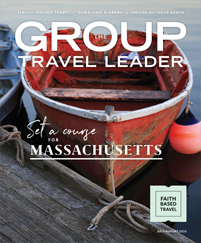If there is one silver lining to the trials our community has suffered over the past two years, it’s this: The travel industry has discovered it is capable of good customer service.
For decades before the pandemic began, some elements of the travel industry had a reputation for mistreating customers. Airlines were by far the worst offenders, with interminable delays and ever-growing gotcha fees. But hotels, car companies and other organizations eventually embraced some of these bad service habits, too.
That changed at the beginning of the pandemic. Airlines were forced to waive cancellations and change fees, and some airline leaders indicated they might consider making no-fee change policies permanent.
When travel cancellations increased in March 2020, tour companies large and small had to spring into full-fledged customer care mode. Large companies gave tens of millions of dollars in refunds and countless more millions in future credits. Smaller companies worked with their clients to reschedule tours again, again and again.
Those refunds, policy changes and other concessions weren’t easy for anybody. But they proved that even large companies are capable of empathy and humanity.
As we proceed into a future in which COVID-19 is no longer a dominant force in our lives, I’d like to think we can maintain some of that empathy and humanity. And though the large companies will have a lot of influence in that, each of us as individuals have important roles to play as well.
What does that look like for you? It’s going to depend on your specific function in the tourism community. But there are some unifying principles that can guide us all. And foremost among them is this: Give people some grace.
When you have trouble contacting a representative from a destination, a hotel or an attraction, give them some grace. They’re likely overwhelmed and under-resourced. Don’t get mad when they don’t call back quickly. Keep reaching out until they do. Even better, build enough time into your planning schedule that a slow response from a vendor doesn’t cause panic.
When travelers want to cancel trips with you shortly before departure, give them some grace. Yes, you could point them to your cancellation policy, insist that rules are rules and keep their deposits. But chances are these disruptions in travel plans are part of turmoil in their lives. Maybe they’re sick or have a sick loved one. Maybe family drama is making travel impossible. When these things happen, let people cancel without fear of losing money. Even better, build enough margin into your budget that you can absorb a few cancellations without putting the entire trip in the red.
When your group arrives at a hotel and the front desk doesn’t have your keys ready, give the hotel some grace. They’re probably understaffed, and the person working at the front desk may not have had time to pre-key your rooms. They may not even know they were supposed to. So be patient, be friendly, and be flexible. Even better, build enough flexibility into your itinerary that a 30-minute delay at the hotel doesn’t put you behind.
In a challenging moment, grace and empathy can feel costly: They’ll cost you some time, some money and some hassle. But they’re not costs, they’re investments. And I have every confidence they’ll pay off in the long run.












